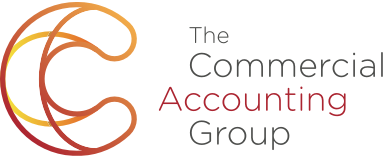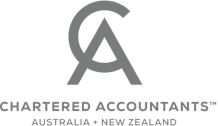Business Tax Planning 2020
Small Business Specific
(Aggregated turnover <$10M)
Prepaid Expenses
Claim expenses prepaid up to 12 months in advance, many of which would include interest, insurances, rent or lease payments.
GST Accounting Method
Review whether there is merit in reporting GST on a “cash” basis rather than an “accruals” basis. In many instances this can provide a one-off cash flow benefit to small businesses.
Often overlooked, is the ability for small businesses to make an annual apportionment of GST input tax credits as well as being able to pay GST by quarterly installments.
Capital Gains Tax (CGT) Concessions
If you sell your business (or active business assets), or the entity that carries on your business, or are considering selling your business in the future, please contact us to discuss eligibility to access the specific small business concessions that may apply to reduce or defer the capital gain.
It is important to note that capital gain is determined at the date the contract was entered into and not settlement date. In one AAT case, it was held that the date of the contract for the sale of the business was when the parties signed the heads of agreement and not when the formal contract for sale was executed.
Instant Assets Write Off
Claim an immediate tax deduction for most new or 2nd hand capital assets bought and used or installed ready for use in the business satisfying the following criteria:
Asset first acquired and first used | Asset cost* |
3 April 2019 to 11 March 2020 | $30,000 |
12 March 2020 to 31 December 2020 | $150,000 |
from 1 January 2021 | $1,000 |
*excluding GST if registered for GST or inclusive if not registered
Medium Business Specific
(Aggregated turnover between $10M and $50M)
The definition of a medium business has only recently required defining for tax purposes due to legislative changes as follows:
Reduced ASIC Reporting and Audit Requirements
This one is a massive win for small and medium sized business with turnover between $25M and $50M.
ASIC have reduced the reporting burden for small and medium businesses by raising financial reporting thresholds which have not been adjusted since 2007. The measures mean significantly more businesses will not need to prepare and lodge financial statements or an auditors report with ASIC.
Currently, proprietary companies are considered to be ‘large’, for the purposes of ASIC reporting requirements, if they meet at least any two of the following three thresholds for a given financial year. This change will mean lower accounting and compliance costs and clients shifting to smaller firms to manage their less complex affairs.
Threshold | 30 June 2019 | 30 June 2020 + |
Consolidated Revenue | >$25M | >$50M |
Consolidated Gross Assets | >$12.5M | >$25M |
Number of Employees | >50 | >100 |
Instant Asset Write Off
Medium businesses will be able to claim an immediate tax deduction for most new or 2nd hand capital assets bought and used or installed ready for use in the business satisfying the following criteria:
Asset first acquired and first used | Asset cost* |
3 April 2019 to 11 March 2020 | $30,000 |
12 March 2020 to 6 October 2020 | $150,000 |
7 October 2020 to 30 June 2022 | $Unlimited |
*excluding GST if registered for GST or inclusive if not registered
All Business in General
Superannuation
For a business to be entitled to claim a deduction for superannuation contributions, the contribution must be made (i.e. received by the superannuation fund) on or before 30 June. Allow extra time when using a clearing house.
Super guarantee contributions must be paid quarterly into the super fund by the 28th day after the end of the quarter. Contributions paid late are not tax deductible and a Super Guarantee Charge (SGC) and ATO penalties apply.
Refer to our separate blogs for Employer and Individual Tax Planning for relevant rates and more on Superannuation
Debts
Review your aged debtors for any bad debts and write-off before 30 June. Bad debts are claimed as a tax deduction in the year they are written off. Remember to also claim back the GST.
Home Office
Home office expenses may be deductible where you carry on business activities at home, summarised below:
Expenses | Home is principal workplace with | Home not principal but has dedicated work area | You work at home but no dedicated work area |
Running expenses* | Yes | Yes | No |
Work related phone & internet expenses | Yes | Yes | Yes |
Decline in value of office equiptment | Yes | Yes | Yes |
Decline in value of office equiptment | Yes | No | No |
* Electricity, gas, cleaning, repairs calculated by a set rate per hour or actual use
** Rent, mortgage interest, insurance, land tax, rates
If you claim occupancy expenses, you don’t qualify for the capital gains tax (CGT) main residence exemption for the part of your home that you use for work. If you use your home as a place of business there may be CGT implications when you sell it.
See the ATO Fact Sheet for more information.
Repairs and Maintenance
You may wish to do this before 30 June to secure your tax deduction for the financial year, subject to being capital in nature or as an addition/improvement to an existing capital asset.
To repair something generally means to fix defects, including renewing parts. It does not mean totally reconstructing something. You do not have to own the item that is repaired.
Inventory (Stock)
Identify any obsolete stock and scrap it prior to 30 June.
Any stock that has a lower market or replaceable value can be written down and a deduction can be claimed for the decrease in the cost.
Different methods of valuation may be used to value the same item of trading stock in different income years, and similar items may be valued using different methods in the same income year.
Work in Progress (WIP)
Manufacturing:
- direct costs e.g. material costs and direct labour, and
- manufacturing overheads e.g. rent
Services:
- WIP is not taxable until invoiced but recommended to be booked for analysis purposes to illustrate the value of work performed during a relevant period
- review any amounts which can’t be billed and write off to clean up your WIP records
GST
Have you remitted GST to the ATO for all disposals of fixed assets, including trade-ins?
Complete GST adjustments arising from the fringe benefits tax return, (e.g. GST on employee contributions) and any prior year balancing adjustments in the June BAS.
Capital Gains Tax (CGT) Assets
If you have made capital gains on sale of assets in the year and have other CGT assets in an unrealised loss position, you may wish to consider selling the later CGT assets prior to 30 June, realising the loss and offsetting against your Capital Gain.
Be careful, as you can’t sell an asset and then buy it straight back to realise the loss as this would be seen as tax avoidance – known as “wash sales”.
To claim the loss in the year, you will need to ensure the sale contract is entered into before 30 June. Capital gains are assessable in the year in which a contract of sale exchanges rather than when it settles.
Depreciable Assets
Review your asset register for any assets that have been scrapped during the year.
The written down value of these obsolete capital items can be written off, which will increase the tax deduction for the year.
Company Loans to Shareholders and their Associates (Division 7A)
If your company has advanced funds to a shareholder or related party, paid expenses or allowed a shareholder or other related party to use assets owned by the company, then this can be treated as a taxable dividend.
The regulators expect that top-up tax (if any applies) should be paid by shareholders at their marginal tax rate once they have access to these profits. This is unless a complying loan agreement is in place.
As the tax rules in this area can be extraordinarily complex and can lead to some very harsh tax outcomes, it is important to talk to us as soon as possible if you think your company has made payments or advanced funds to shareholders or related parties.
If you have any shareholder loan accounts from prior years that were placed under complying loan agreements, the minimum loan repayments need to be made by 30 June. It may be necessary for the company to declare dividends before 30 June to satisfy these loan repayments.
Taxable Payments Reporting – Building & Construction Industry
Businesses in the building and construction industry that pay contractors for building and construction services must lodge a Taxable Payments Annual Report with the ATO by 28 August.
Personal Services Income (PSI)
If your company conducts a business that relies on your personal effort and skill to generate income, then you need to be aware of the rules applying to the diversion of PSI.
If the company earns PSI, the ATO will treat the income as having been derived by you personally (rather than the company) unless certain tests can be satisfied. This means that your personal tax rates will apply to the business income and you will be denied access to a range of tax deductions normally available to businesses.
Even if the rules haven’t affected you in the past, this is an annual test and you might be caught if your circumstances have changed.








